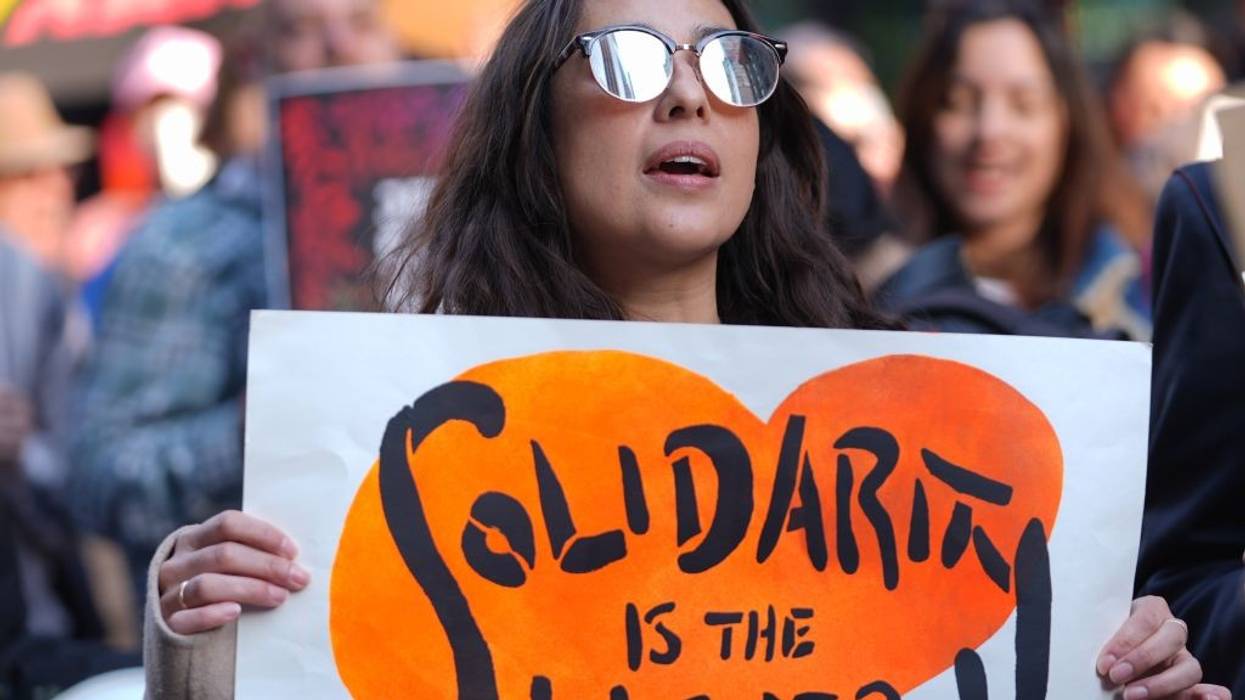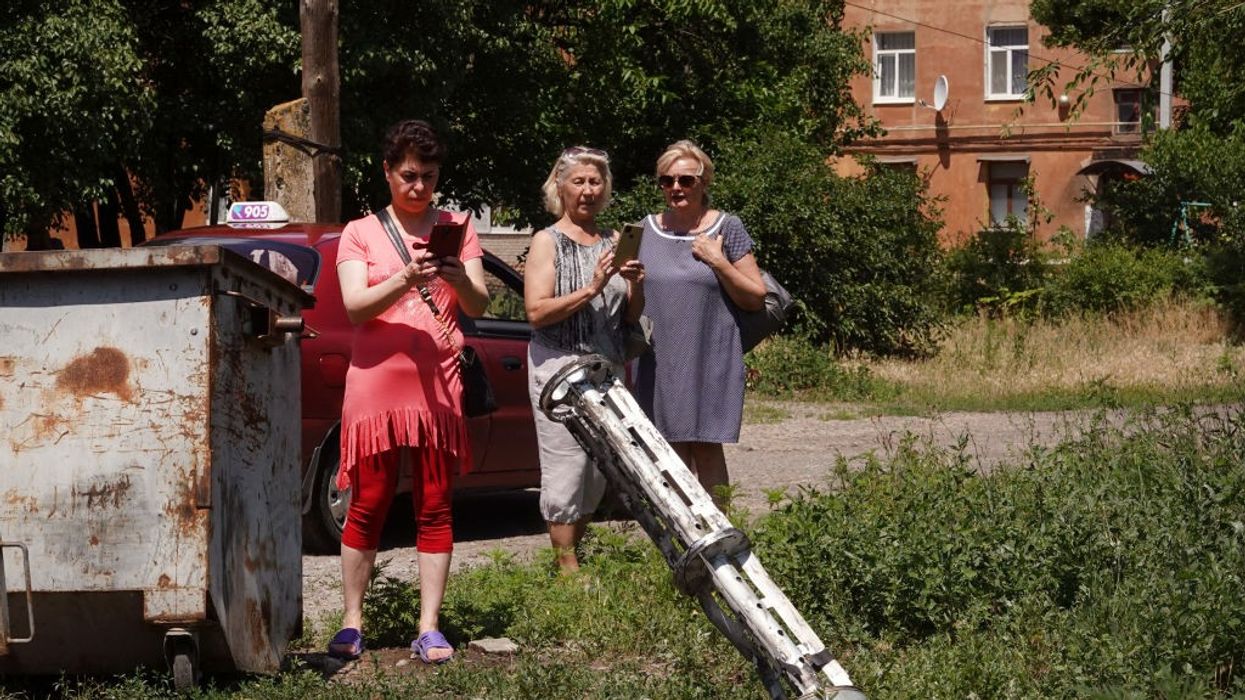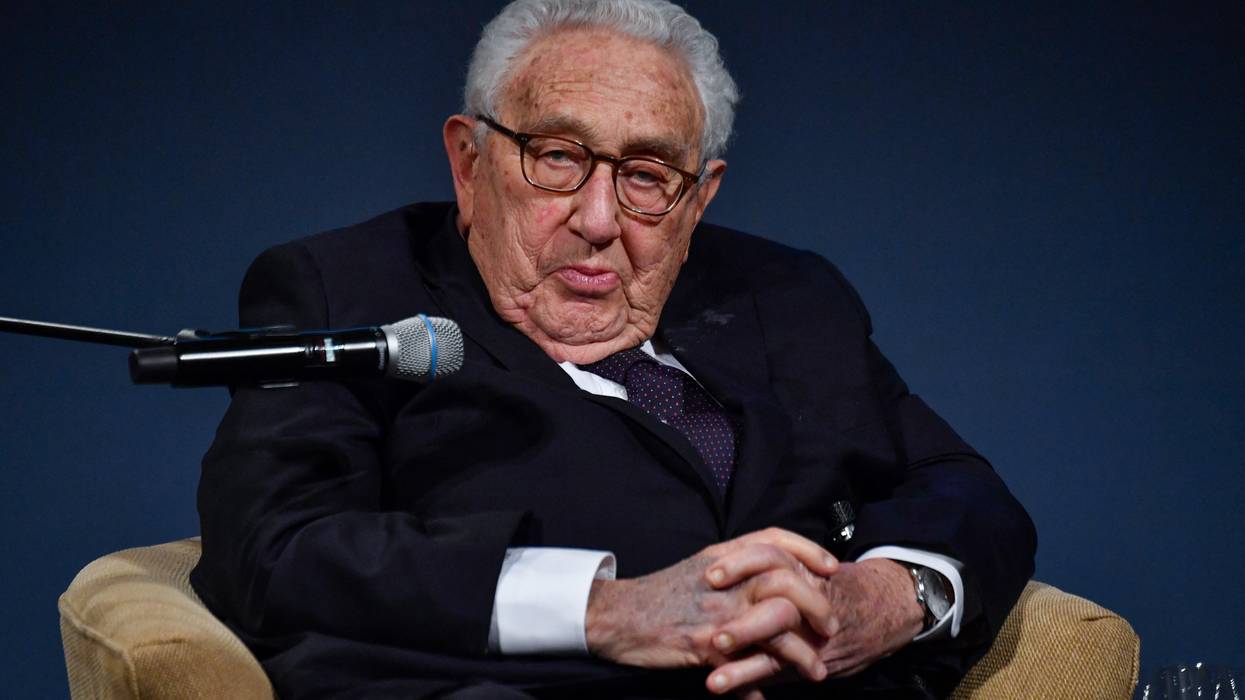To Fight Billionaire-Backed Fascism, We Need Grit and Solidarity—Not Hope
This deeply perilous time requires realism—but not fatalism. In the worst of times, solidarity is most needed.
When some leading thinkers at the London School of Economics saw fascism take hold in the 1930s, Oxford history professor Ben Jackson said in a recent BBC interview, they “argued that in those circumstances the people with economic power in society, the property owners, are willing to cancel democracy, cancel civil liberties, and make deals with political organizations like the Nazis if it guarantees their economic interest.”
That analysis has an ominous ring to it now as many tech industrialists swing behind President-elect Trump. They can hardly be unaware that Gen. Mark Milley, who served as the Joint Chiefs of Staff chairman under Trump, described him as “fascist to the core.”
“Big congratulations to our 45th and now 47th President on an extraordinary political comeback and decisive victory,” Amazon founder Jeff Bezos tweeted the morning after the election. Weeks earlier, as the owner of the Washington Post, Bezos had blocked an endorsement of Kamala Harris by the newspaper’s editorial board.
Bezos could lose billions of dollars in antitrust cases, but now stands a better chance of winning thanks to a second Trump administration. During the last decade, Amazon Web Services gained huge contracts with the federal government, including a $10 billion deal with the National Security Agency.
We’re alive. Let’s make the most of it, no matter how much hope we have.
No wonder Bezos’ post-election tweet laid it on thick—“wishing @realDonaldTrump all success in leading and uniting the America we all love.”
Not to be left behind at the starting gun in the tech industry’s suck-up-to-Trump derby, Meta’s CEO Mark Zuckerberg wrote: “Congratulations to President Trump on a decisive victory. We have great opportunities ahead of us as a country. Looking forward to working with you and your administration.”
As a nine-figure donor and leading purveyor of online lies for the 2024 Trump campaign, Elon Musk has been working closely with Trump. The Tesla magnate, X (formerly Twitter) owner and SpaceX mogul is well-positioned to help shape policies of the incoming administration. A week after the election, news broke that Musk has been chosen by Trump to co-lead an ill-defined “Department of Government Efficiency” with an evident mission to slash the public sector.
Musk, Bezos, and Zuckerberg rank first, third and fourth respectively on the Forbes list of the world’s richest individuals. The three of them have combined wealth of around $740 billion.
“In recent years, many tech elites have shrugged off the idealism once central to Silicon Valley’s self-image, in favor of a more corporate and transactional approach to politics,” the Washington Post gingerly reported after the election. The newspaper added: “A growing contingent of right-wing tech figures argue that Trump can usher in a new era of American dominance by removing red tape.”
For amoral gazillionaires like Bezos and Musk, ingratiating themselves with Trump is a wise investment that’s calculated to yield windfall returns. Evidently, the consequences in human terms are of no real concern. In fact, social injustice and the divisions it breeds create the conditions for still more lucrative political demagoguery, with the richest investors at the front of the line to benefit from corporate tax cuts and regressive changes in individual tax brackets.
After Election Day, the fascism scholar Jason Stanley offered a grim appraisal: “People who feel slighted (materially or socially) come to accept pathologies—racism, homophobia, misogyny, ethnic nationalism, and religious bigotry—which, under conditions of greater equality, they would reject. And it is precisely those material conditions for a healthy, stable democracy that the United States lacks today. If anything, America has come to be singularly defined by its massive wealth inequality, a phenomenon that cannot but undermine social cohesion and breed resentment.”
The threat of fascism in the United States is no longer conjectural. It is swiftly gathering momentum, fueled by the extremism of the party set to soon control both the executive and legislative branches of the U.S. government as well as most of the federal court system.
It’s not only that, as Stanley notes, “the Republican Party’s domination of all branches of government would render the U.S. a one-party state.” Already set in motion are cascading toxic effects on social discourse and political dynamics, marked by widening acceptance and promotion of overt bigotries and brandished hatreds.
The successful relaunch of Trump’s political quest has again rocketed him into the stratosphere of power. Corporate profits for the few will reach new heights. Only humanity will suffer.
This deeply perilous time requires realism—but not fatalism. In the worst of times, solidarity is most needed.
And what about hope?
Consider what Fred Branfman had to say.
In the late 1960s, Fred was a humanitarian-aid volunteer in Laos when he discovered that his country was taking the lives of peasants there by the thousands. He assembled Voices from the Plain of Jars, a book with the subtitle “Life Under an Air War,” published in 1972. It included essays by Laotian people living under long-term U.S. bombardment along with drawings by children who depicted the horrors all around them.
When I asked Fred to describe his experience in Laos, he said: “At the age of 27, a moral abyss suddenly opened before me. I was shocked to the core of my being as I found myself interviewing Laotian peasants, among the most decent, human and kind people on Earth, who described living underground for years on end, while they saw countless fellow villagers and family members burned alive by napalm, suffocated by 500-pound bombs, and shredded by antipersonnel bombs dropped by my country, the United States.”
The successful relaunch of Trump’s political quest has again rocketed him into the stratosphere of power. Corporate profits for the few will reach new heights. Only humanity will suffer.
Fred moved to Washington, where he worked with antiwar groups to lobby Congress and protest the inflicting of mass carnage on Indochina. During the decades that followed, he kept working as a writer and activist to help change policies, stop wars, and counteract what he described as “the effect on the biosphere of the interaction between global warming, biodiversity loss, water aquifer depletion, chemical contamination, and a wide variety of other new threats to the biospheric systems upon which human life depends.”
When I talked with Fred a few years before his death in 2014, he said: “I find it hard to have much 'hope' that the species will better itself in coming decades.”
But, Fred went on, "I have also reached a point in my self-inquiries where I came to dislike the whole notion of ‘hope.’ If I need to have ‘hope’ to motivate me, what will I do when I see no rational reason for hope? If I can be ‘hopeful,’ then I can also be ‘hopeless,’ and I do not like feeling hopeless.”
He added: “When I looked more deeply at my own life, I noticed that my life was not now and never had been built around ‘hope.’ Laos was an example. I went there, I learned to love the peasants, the bombing shocked my psyche and soul to the core, and I responded—not because I was hopeful or hopeless, but because I was alive.”
We’re alive. Let’s make the most of it, no matter how much hope we have. What we need most of all is not optimism but determination.


